Developing ‘character-based’ leadership in low- and middle-income countries
Findings from the Character and Global Leadership Survey 2023, released by the Oxford Character Project, suggest that the systematic development of leaders’ qualities of character – such as integrity, purpose and hope – is rare among leadership programmes worldwide. Strategic investment of time and resources is vital to strengthen programmes, identify effective practice and enable contextualised approaches.
Global challenges, including climate change, poverty, war and inequality, highlight the need for good leadership across sectors in society and around the world. Such leadership must be effective and ethical, joining the knowledge and skills that enable communication, collaboration and decision-making to fundamental qualities of character such as integrity, purpose and hope.
Local leadership is essential to engage with challenges and advance positive change. However, a knowledge gap exists regarding contextualised understanding of what good leadership is and in the development of leaders with character to foster common good in various contexts.
The Character and Global Leadership Survey 2023, led by a global group of researchers from China, India, Kenya, Mexico, Nigeria, Russia, South Africa and the UK, aimed to systematically map research and educational programmes in 137 low- and middle-income countries (LMICs) with a focus on ethical or “character-based” leadership. This is a common emphasis around the world, but is expressed differently in different socio-cultural contexts. The recently released report identified 1,071 academic papers published between 1990 and 2022, as well as 99 programmes focusing on developing leaders with character and virtue in LMICs. It presents seven major findings.
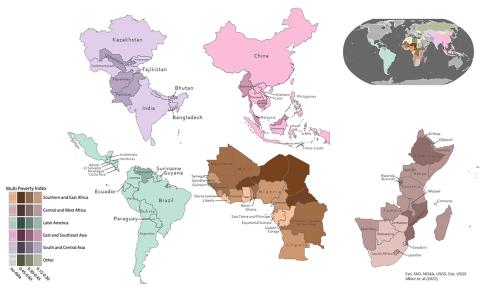
1. There has been a consistent increase in published papers on character-based leadership across all regions, with major increases following the global crises in 2008 and 2020. Prior to 2008, the number of papers was low, but the aftermath of the Global Financial Crisis in 2008, which was widely considered to be the result of a failure of leadership and character, corresponds with a significant increase. The interest continued to grow through the 2010s and increased again following the outbreak of the COVID-19 pandemic in 2020. It seems that character-based leadership is one of the answers that people across the globe turn to when facing chaos and uncertainty.
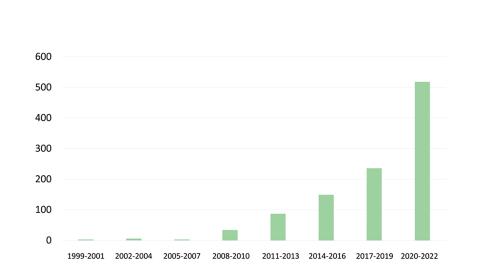
2. The survey found a particularly high volume of research on character-based leadership in East and Southeast Asia. Many countries have no papers published on character-based leadership.
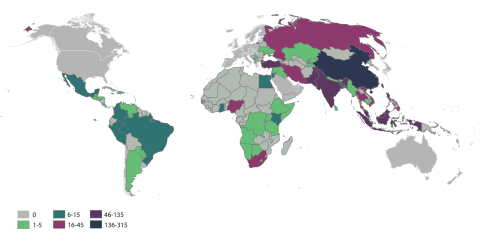
3. The most popular research theme is the impact of character-based leadership, which accounts for nearly 70% of papers. The vast majority of papers report a positive and multilayered effect, including positive outcomes for individuals (e.g. improved work performance and job satisfaction), organisations (e.g. improved team performance and organisational culture) and society (e.g. reduction in corruption).
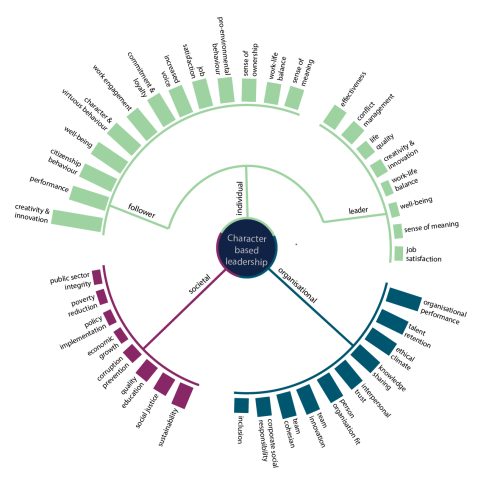
4. The most valued leadership virtues across LMICs are empathy, honesty, courage, transparency, care and fairness.
5. Servant leadership, a leadership style that sees leaders as servants who put the needs of others before their own, is the most prominent model in academic research. Most character-based leadership models used in research were developed in North America and Europe, and there is a dearth of research on contextualised models.
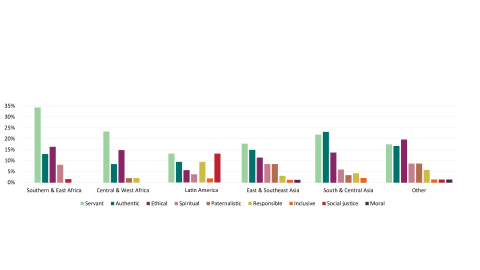
6. Only 5% of character-based leadership programmes focus on public-sector leadership, and 6% of all programmes develop women leaders.
7. Intentional and systematic development of leaders’ character is rare. Practitioners around the world face challenges in justifying the relevance and importance of character in leadership development, and there is a lack of networks to facilitate idea-sharing and resource exchange.
The findings of the report suggest that the intentional and systematic development of leaders’ character is rare among leadership programmes. Strategic investment of time and resources is vital to strengthen existing programmes, develop a reliable understanding of effective practice, and enable the development of contextualised approaches. A network of researchers and practitioners would facilitate the exchange of knowledge and necessary resources.
This report has been shared with researchers, programme leaders and philanthropic foundations around the world, and the research team hope that it will contribute to further exploration, dialogue and collaboration, as well as increased investment in character-based leadership globally. The Oxford Character Project also plans to conduct further research on contextualised understanding of character-based leadership and relevant virtues in various cultural contexts and help build a network of global researchers and practitioners to facilitate idea sharing and exchange of best practices.
The Character and Global Leadership Survey 2023 was made possible through the generous support of the Templeton World Charity Foundation.
